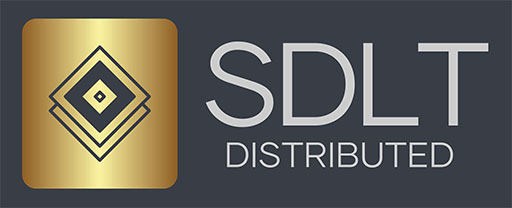
James Finch: Unlocking the era of tokenisation
Over the next five years, tokenisation and the use of distributed ledger technology (DLT) are likely to become some of the most significant developments in global investment markets.
 They promise to reshape how traditional assets are issued, held and traded, modernising the infrastructure that underpins wealth management, platforms, pensions and institutional investment.
They promise to reshape how traditional assets are issued, held and traded, modernising the infrastructure that underpins wealth management, platforms, pensions and institutional investment.
For investors, the attraction is straightforward. Tokenisation promises faster settlement, lower friction, lower costs and broader access across markets that are often constrained by legacy systems and outdated processes.
For policymakers and regulators, it raises new questions about trust, oversight and systemic resilience. The outcome will depend on how effectively the industry works together to turn potential into practice.
At its simplest, tokenisation represents ownership of an asset such as a bond, fund unit, or property through a digital token recorded on a distributed ledger. The underlying asset remains the same, but the way ownership is recorded and transferred changes fundamentally.
Things are moving fast. The question is whether wealth platforms, pension trustees and others are ready to move with them
Change is already underway. Global banks, asset managers and regulators are testing tokenised bonds, funds and settlement processes. In the UK, the FCA’s latest consultation, CP25/28, outlines practical steps such as tokenised fund registers, an optional direct-to-fund dealing route and a roadmap for scaling.
The Bank of England and FCA have launched the Digital Securities Sandbox, a live environment for testing tokenised issuance and settlement. Alongside this, the Law Commission is advancing legal clarity, and the Investment Association’s Blueprint for fund tokenisation is establishing the baseline for UK market adoption.
Things are moving fast. The question is whether wealth platforms, pension trustees and other participants are ready to move with them.
Why trustees and platforms should care
Tokenisation isn’t a fringe experiment; it’s a strategic opportunity to deliver tangible benefits to clients and beneficiaries.
By automating reconciliation and reducing intermediaries, it can shorten settlement cycles, cut costs and improve transparency, reducing operational friction and error.
Jesse Knutson: The FCA should seize the opportunity in tokenisation
It also opens the door to fractional ownership, allowing investors to hold smaller portions of large or illiquid assets. For platforms, that means new flexibility and increased personalisation in portfolio construction.
Tokenisation could help make private markets and alternative assets more accessible, easily transferable and manageable within diversified portfolios.
Operationally, tokenisation can support more integrated data and reporting frameworks across platforms, custodians and trustees.
By standardising ownership records and settlement processes, it can strengthen governance and simplify administration – an important consideration for participants, such as pension trustees, requiring oversight across multiple investment structures.
Balancing innovation with trust
The appeal of tokenisation seems clear, but its adoption must rest on strong foundations. Legal clarity, data integrity and secure administration and custody are all prerequisites.
Dividing an asset into tokens doesn’t automatically create liquidity or stability. These challenges will require close coordination between regulators, technology providers and investment institutions.
Tokenisation’s success will depend on shared standards that make it safe, scalable and beneficial
The goal is not disruption for its own sake, but better infrastructure, reducing cost, increasing transparency and improving outcomes for clients and beneficiaries. That demands the same rigour applied to any strategic initiative: sound governance, clear regulatory engagement and alignment with investor interests.
Looking ahead
By 2030, tokenisation may simply be part of how markets operate with registers updating in real time, settlement in seconds and data improving oversight and reporting.
But getting there will require collaboration. No single firm or regulator can build the necessary ecosystem alone. Industry partnerships, pilots and open dialogue will be essential to building trust and compatibility.
Tokenisation’s success will depend on shared standards that make it safe, scalable and beneficial across the investment landscape.
A great opportunity now exists for pension funds, investment administrators and wealth platforms to be part of that journey, not watching from the sidelines, but helping shape how the next generation of investment infrastructure delivers for clients.
James Finch is CEO of Mobius
